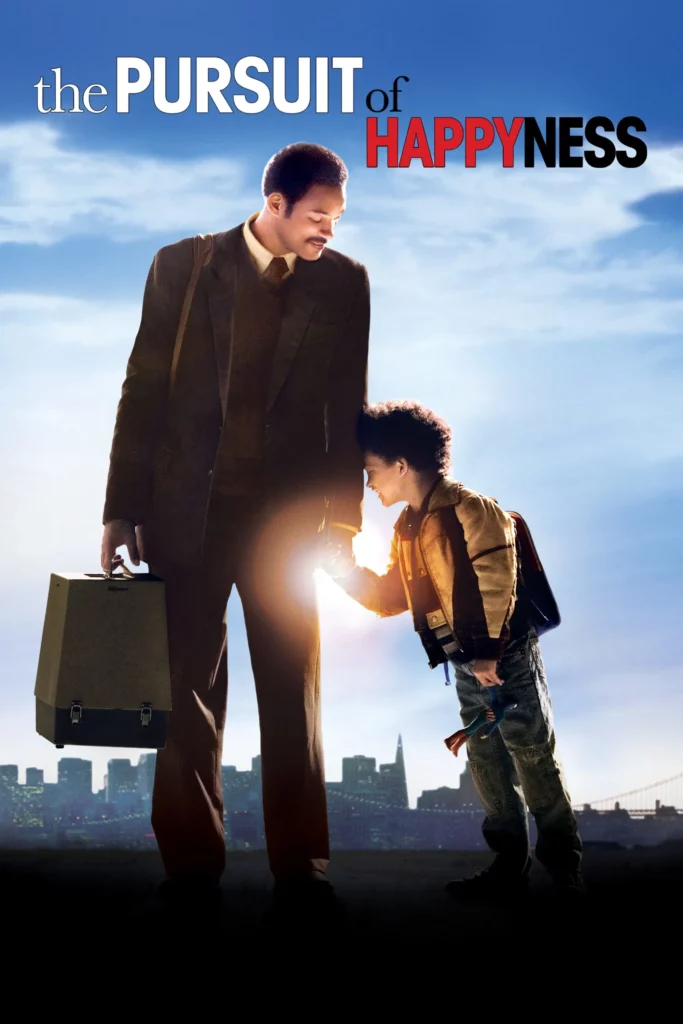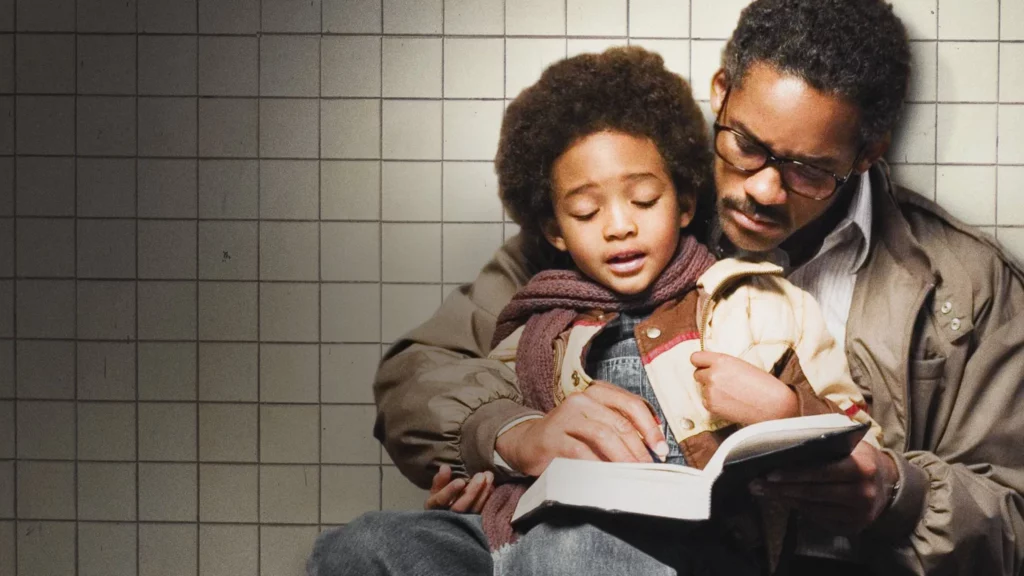For those facing uncertainty and looking for ways to stay motivated, it’s worth noting how resilience and time management can become powerful allies. In the film The Pursuit of Happyness, starring Will Smith, we see how Chris Gardner, a father caught in difficult economic and personal circumstances, refuses to give up on giving his son a better future.
The story shows how Gardner, after becoming homeless, remains steadfast in his goal of moving forward. He needs to secure a stable position, so he joins a demanding internship program at a brokerage firm. At the same time, he continues selling medical devices and taking care of his child. Each day becomes a test where his only weapons are ingenuity and determination, allowing him to keep going against all odds.
Throughout the plot, the value of resilience—understood as the ability to overcome obstacles and turn them into growth opportunities—stands out. Chris perfectly embodies this idea, never giving up despite spending nights in shelters or subway stations. His determination and belief that better days will come enable him to stand tall and move on, even when everything seems stacked against him.
When resources are scarce and time seems unforgiving, the ability to organize becomes crucial. Chris must balance hours of sales calls, caring for his son, and his studies to excel in his professional training. He manages to prioritize what truly matters and carries out his plans without losing sight of his end goal. This skill—setting clear objectives even with minimal time—proves essential in any aspect of life.
Looking more closely at Chris’s actions reveals valuable lessons about determination and focus. He doesn’t stop at the first sign of failure, directs his energy toward tasks that will have a tangible impact on his future, and remains flexible in adapting to unexpected situations. His personal journey is a reminder that, although circumstances may darken, perseverance can open up new opportunities.

Anyone seeking to develop greater resilience and better time management can draw inspiration from the strategies hinted at in the story: making the most of each available minute, knowing how to ask for help when everything gets complicated, and using simple methods like breaking work into focused intervals or setting daily priorities. Chris shows that even a few minutes invested wisely, repeated with discipline, can make a difference in the long run.
The film also reminds us that self-confidence grows when we know we’re doing our best with the resources we have. That sense of control, however small, fuels optimism and eases anxiety. Chris Gardner’s example encourages us to stick to our plans and believe that, step by step, we can create the conditions needed to achieve our goals.
Finally, consider a personal observation exercise: log how you spend your time over the course of a week and note any obstacles you encounter. Then reflect on how you might tackle them with stronger resilience and more effective organizational strategies. Like Chris, we all face challenges, but we also possess the ability to pick ourselves up and keep moving forward, no matter how daunting the situation may seem.

